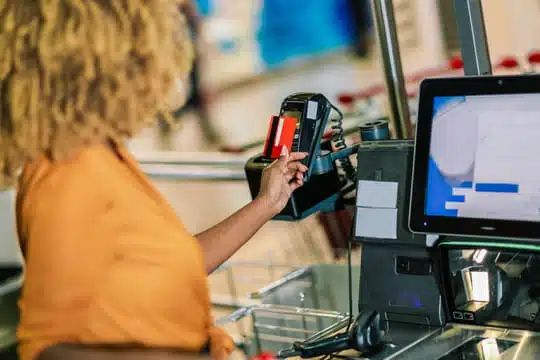They’re everywhere in supermarkets, which are supposed to save us time and make our purchases easier. Yet their future seems to be in jeopardy. While the brands have invested heavily in these machines, some are starting to back down. Why this turnaround? Fraud, customer dissatisfaction and hidden costs, the automatic cash pools would not be as advantageous as previously thought.
-
A scourge for shops: the explosion of theft

At first glance, paying for his groceries alone, without going through a cashier, seems practical. But this autonomy has a setback: flights are exploding.
Fraud takes different forms: customers pass items without scanning them, others exchange barcodes to pay less. Sometimes the error is involuntary, but the result is the same: massive losses to shops.
According to some studies, supermarkets with automatic checkouts have much higher losses due to theft and errors than with traditional boxes. Some even believe that these financial losses exceed the savings achieved by reducing staff. A situation that encourages several brands to review their strategy.
-
A degraded customer experience: when technology becomes a brake
While the automatic checkouts promise a saving in time, they are not always synonymous with simplicity.
Who has never been blocked by a product that needs validation? Who has never waited for an employee to unblock a scan error? Bugs, restrictions and complexity of the system often turn the shopping experience into a real puzzle.
Another black spot is the disappearance of human interaction. No more exchanges with a cashier, place a cold and impersonal process. A change that particularly affects older and remote people, for whom exchanges with staff is an integral part of the race ritual.
By wanting to speed up the cash register, some stores have finally created more frustration.
-
Less profitable investment than expected

Behind these machines, a less bright economic reality is lurking.
Each terminal costs several thousand euros for the purchase, not to mention maintenance, updates and repairs in the event of a breakdown. However, these incidents are frequent, requiring regular human intervention, which further reduces the financial value of the scheme.
Moreover, if the original goal was to reduce staff, many stores eventually have to hire additional employees to monitor and accompany customers.
Faced with these hidden costs, several retailers are wondering whether the investment is really worth it.



